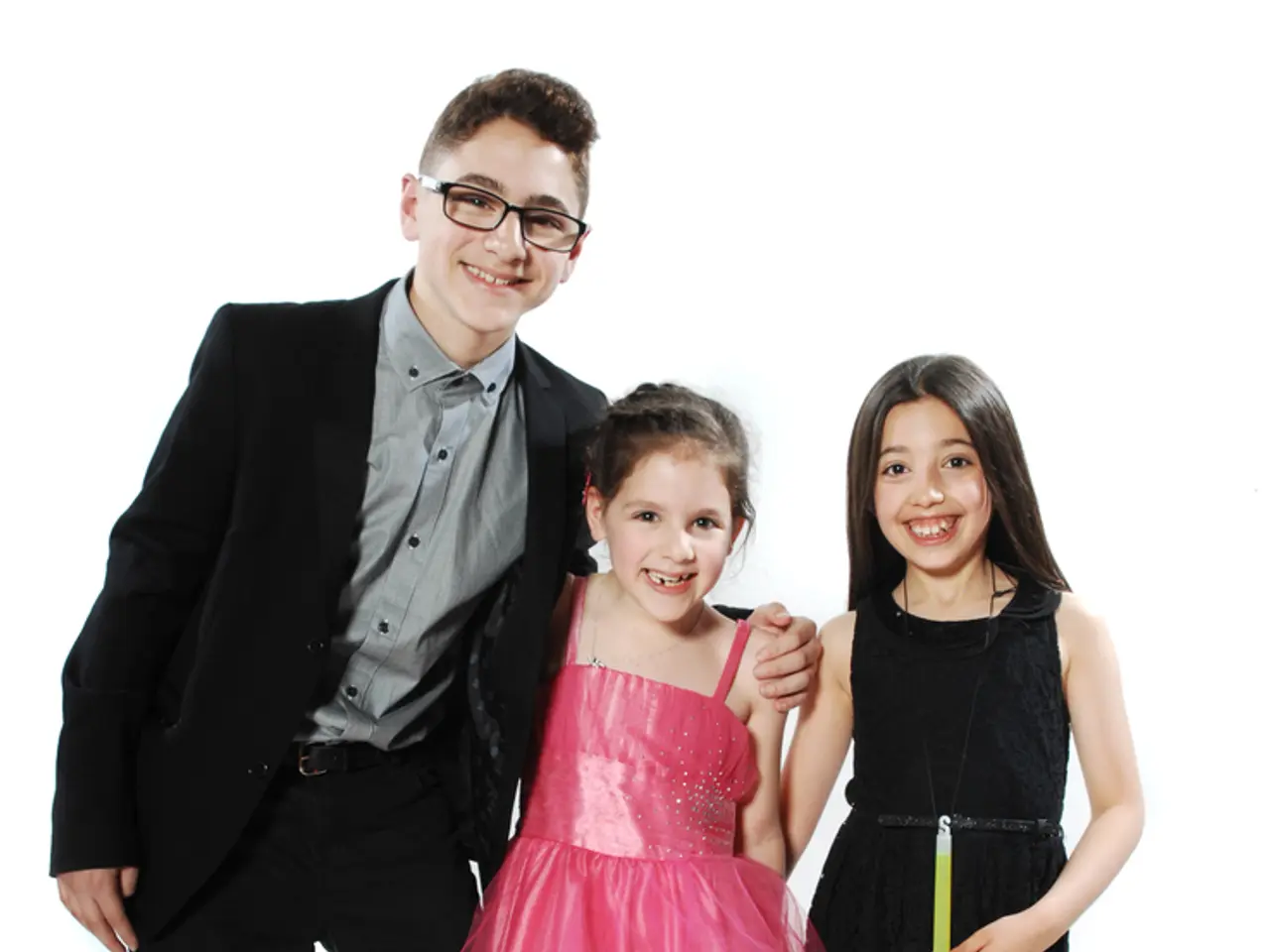Significant Stages in a Child's Early Life that Hold Importance
The British Baby and Mother Association (BBMA) encourages parents to support their child's development in all domains - physical, cognitive, social, and emotional. Some key strategies include reading together daily, talking throughout the day, providing plenty of physical activity, limiting screen time, following their child's lead, creating consistent routines, and engaging in age-specific activities.
Developmental Milestones and Red Flags
Typical developmental milestones for infants, toddlers, and preschoolers can vary, but here's a general guide:
Infants (0–12 months)
- Physical: Develop gross motor skills like holding head up, rolling over, sitting unsupported, crawling, and fine motor skills like grasping and manipulating objects.
- Cognitive: Show sensory responses to sights and sounds, recognize familiar faces and objects, understand object permanence, and experiment with cause-effect.
- Social/emotional: Begin to respond to social cues, replicate facial expressions, form secure attachments, and express a range of emotions.
Potential red flags for infants by 12 months include not responding to sounds or their name, not making eye contact or sharing smiles, not babbling, not reaching for or grasping objects, and lack of back-and-forth gestures.
Toddlers (1–3 years)
- Physical: Improve walking, running, climbing, and fine motor skills like stacking blocks and feeding themselves.
- Cognitive: Develop problem-solving skills, follow simple instructions, engage in exploratory play, and demonstrate early language abilities.
- Social/emotional: Show parallel play, express needs verbally and non-verbally, and start to understand social routines and rules.
Potential red flags for toddlers (by 24 months) include not walking independently, not using at least 15-20 words, not imitating actions or words, loss of previously acquired skills, and lack of pretend play.
Preschoolers (3–5 years)
- Physical: Refine coordination, balance, and manual dexterity needed for activities like drawing and dressing.
- Cognitive: Engage in symbolic play, use imagination, follow multi-step instructions, and begin logical thinking.
- Social/emotional: Participate in cooperative play, develop empathy, express more complex emotions, and form friendships.
Potential red flags for preschoolers (3-5 years) include speech that is difficult to understand, significant difficulty interacting with other children, inability to engage in pretend play, extreme difficulty with transitions or changes in routine, and loss of previously acquired skills.
Parental Support Strategies by Stage
Infants
Provide responsive caregiving through talking, singing, facial expressions, and gentle touch. Encourage sensory exploration with safe objects and support motor development by allowing tummy time and safe movement opportunities.
Toddlers
Offer simple choices to foster independence, provide safe spaces for physical play, read books and talk to develop language and cognitive skills, and model social behaviors and guide emotional expression.
Preschoolers
Encourage imaginative and cooperative play, engage in storytelling and problem-solving activities, support emotional understanding by discussing feelings, and establish consistent routines to provide security.
Seeking Professional Help
BBMA invites parents to schedule a developmental consultation with their experts to discuss their child's unique needs and how their programs can support their growth. Monitoring progress and consulting healthcare providers for concerns is important for optimal development.
BBMA celebrates individual differences and tailors their approach to each child's unique needs. They offer programs for infants, toddlers, and preschoolers, each designed to support development in all domains. Their fours program and Pre-K options provide comprehensive school readiness through intentional pre-academic experiences, project-based learning, social skill development, executive function practice, and preparation for kindergarten routines.
BBMA monitors and supports developmental progress through ongoing observation and documentation, individualized learning plans, regular parent communications, intentional classroom environments, differentiated instruction, early identification of potential concerns, and supportive referrals when needed. Their threes program includes interactive learning centers, early literacy and math activities, creative arts opportunities, group projects, and guidance in friendship skills.
- The BBMA recommends parents to help their preschoolers engage in symbolic play and support emotional understanding by discussing feelings, as these strategies aid in their development of empathy and complex emotions.
- For toddlers, the BBMA suggests modeling social behaviors and guiding emotional expression, providing simple choices to foster independence, and reading books to develop language and cognitive skills.
- In infancy, the BBMA advocates for responsive caregiving through talking, singing, facial expressions, and gentle touch, and encourages sensory exploration with safe objects to support motor development.
- In their programs, BBMA offers science, health-and-wellness, education-and-self-development, and lifestyle courses for infants, toddlers, and preschoolers, all aimed at supporting child development in all domains – physical, cognitive, social, and emotional.




